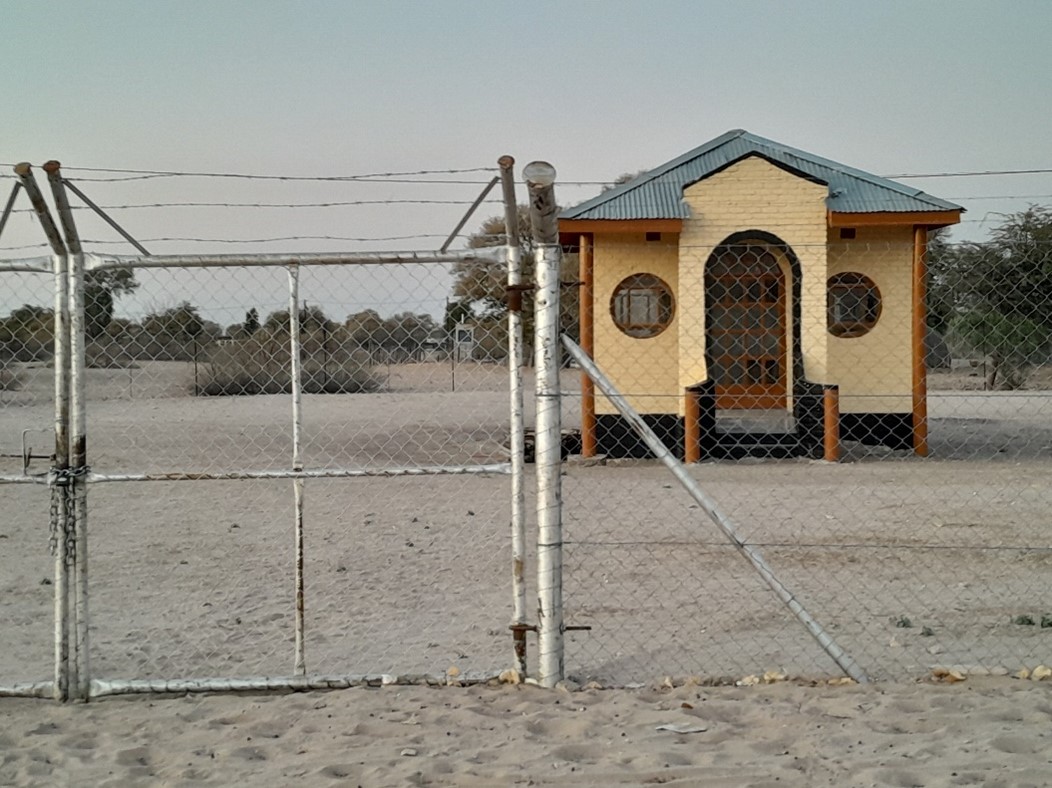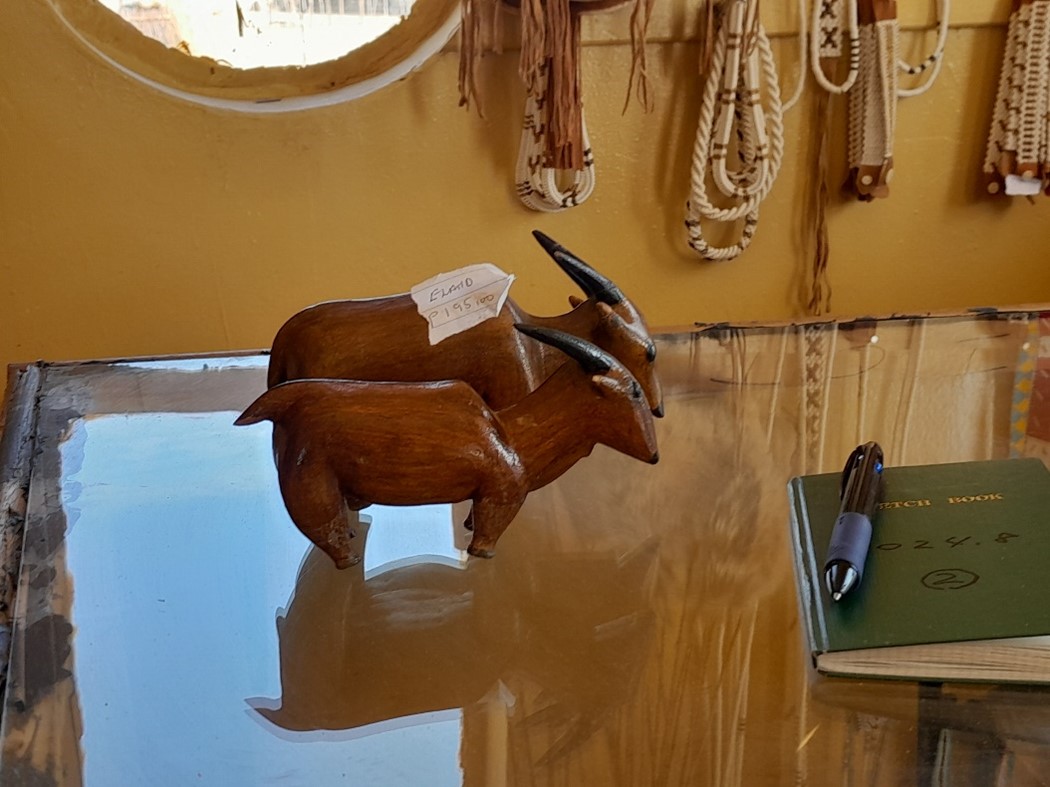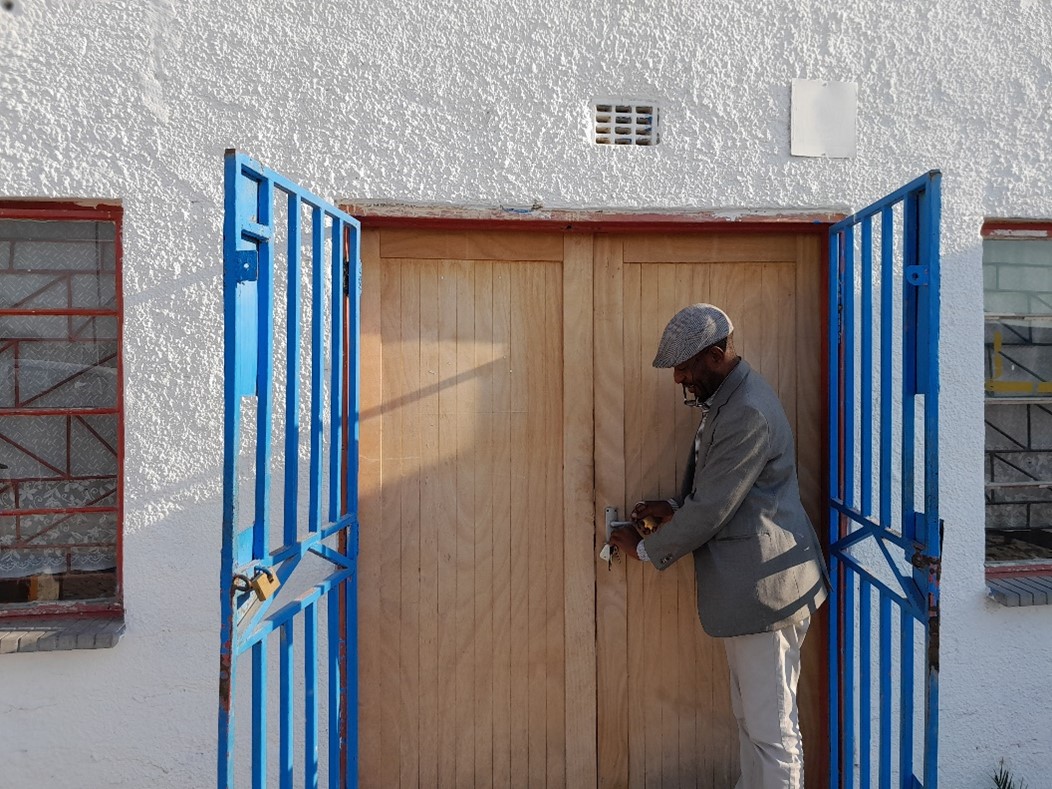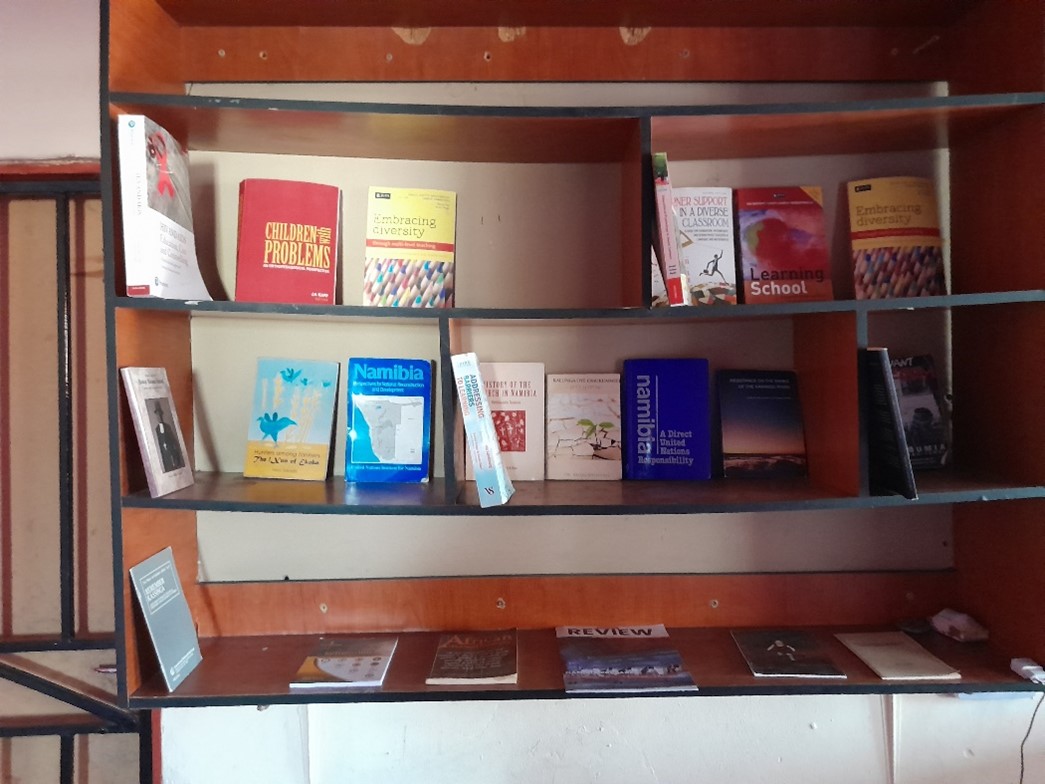Report on the Dispatch to Botswana, Namibia, and South Africa: Progresses of Scientific Research (S)
Kyoto University
Graduate School of Asian and African Area Studies
Professor, Akira Takada
From August 1 to September 6, 2024, I visited the University of Botswana, New Xade Village in Botswana, the University of Namibia, Evangelical Lutheran Church in Namibia (ELCIN), Ekoka Village in Namibia, and Onandjokwe Medical Museum, and so on, to hold research meetings, collect data, and field research related to this project. Although the distance travelled was large for the duration of the trip and the itinerary was hard, it was a fulfilling trip that will lead to the development of this project, as seen below.
At Gaborone, the capital of Botswana, I first visited the Department of African Languages and Literature, the San Research Center, and the Department of Environmental Health, in the University of Botswana, which will be our counterpart for this research project, and met with Associate Professor Maitseo Bolaane, Professor Budzani Gabanamotse-Mogara, Professor Andy Chebanne, Senior Lecturer Roy Tapera, and Dr. Dimpho Ralefala. In addition, I collected data on the contact zones of hunter-gatherers and agro-pastoralists in Botswana. In this meeting, we shared information regarding this project, exchanged opinions on the planning and management of the project. We also discuss renewing the research permit, exchanged information on the future dispatch and invitation of faculty members and graduate students between Botswana and Japan. In the University of Botswana, particularly, we held concrete discussions on plans for workshops and field excursions in Botswana in the coming year. As part of the research project, the workshop will argue issues related to social restructuring in the contact zones of Botswana, especially (post-)forager’s early socialization and revitalization of their folk knowledge. Field excursion to New Xade, one of the contact zones in Botswana, to learn about practical issues related to the above research project, such as language, education strategies, family structure, health, and policy there.
I also visited the Embassy of Japan in Botswana and the Botswana Branch of JICA to introduce the progress of the project and my education and research activities so far, which have been the background to of this project. We also exchanged information on the recent social and political situation in Botswana and the activities that the Embassy of Japan in Botswana and the JICA Botswana Branch Office have actively promoted in recent years (e.g. activities surrounding the Kazungula Bridge near the border between Botswana and the neighbouring country). The meeting was both interesting and enjoyable.
The visit was followed by a visit to one of the main sites of the project, the village of New Xade in the Ghanzi District. Although it was only for a short period of about one week, it was a fulfilling stay, as I conducted participant observation on the project among the residents and visited the New Xade San Craft Shop, which is expected to contribute to community development utilising indigenous knowledge and is closely related to the project (Photos 1 and 2).


Then I moved to Namibia. First, I visited the University of Namibia (UMAN), which is the counterpart of this research project, in Windhoek, the capital of Namibia. In UNAM, I had a meeting on the contact zones between hunter-gatherers and agro-pastoralists in Namibia with, Lecturer / Dr. Romie Nghitevelekwa and Lecturer / Dr. Fenny Ndapewa Nakanyete. Lecturer / Dr. Nakanyete is an excellent researcher who has recently completed a doctoral thesis based on the life history of inhabitants in the hunter-gatherer and agro-pastoralist contact zone in Namibia, and we are considering conducting joint research in the area and inviting her to Kyoto University as part of this project.
I then moved to Oniipa, in north-central Namibia, where the headquarters of the Evangelical Church of the Namibian Alterists (ELCIN) is located. Since 1870, the ELCIN has not only contributed significantly to educational and development activities in north-central Namibia and to Namibia’s liberation movement from South Africa, but also to San-specific development activities, resettlement and Christianity and literacy education (Takada 2022). Oniipa is home to the headquarters church of the ELCIN, as well as the Onandjokwe Hospital, which was established and operated by the ELCIN and later became independent, the Onandjokwe Medical Museum, which is attached to the Onandjokwe Hospital and introduces its historical contributions and houses materials on the activities of the Onanjokoe Hospital, and the Auara Library, which has been open to the local population and houses materials on ELCIN activities, as well as books for the general public, and the ELCIN Publishing Department, which has developed its own publishing business over many years, including during the liberation movement (Photos 3 and 4). In Oniipa, I worked with Kleopas Nghikefelwa, whose father was the late Sakaria Nghikefelwa, who was involved in literacy education in San in ELCIN. Kleopas himself is based at the Onanjokoye Medical Museum, where he is engaged in multifaceted activities. In this research project, I plan to collaborate with Kleopas on research into the regional history, San culture and development of the Contact Zone in north-central Namibia. Oniipa is considered to be an important resource and human networking base for this project, and I intend to continue our research and survey activities in the area. Ms. Mayu Watanabe, who I have been supervising her Ph.D study, is currently conducting long-term fieldwork in this area.


And then, I made a short visit to the village of Ekoka, which is the main site of this project, in the Okongo district. Although it was a short stay, I was warmly welcomed by old friends and acquaintances, as well as young people and children of the following generation, and I was able to have a heart-warming exchange.
Due to the limitation of the paper size, I cannot describe the trip in full, but afterwards I returned to Windhoek to hold research meetings with the people involved in this project and to collect research materials. In summary, I believe that this trip made a significant contribution to the progress of the project “Ecological future making of childrearing in contact zones between hunter-gatherers and agro-pastoralists in Africa”. I would like to thank the institutions and people who made this possible.
